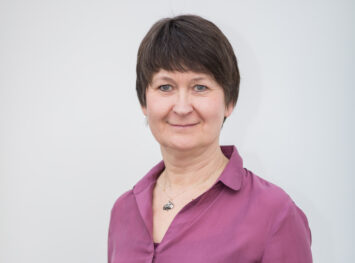Towards thoughtful, informed, and compassionate journalism in covering human trafficking (THALIA)
2021/04/15
Project duration
01.10. 2020 – 31.12.2021
Background information
The role of media and journalism in shaping the collective understanding of Trafficking in Human Bings (TBH) is crucial. Inaccurate, unethical or uncompassionate media reporting can result in devastating consequences for the victims exploited by this crime. At the same time mass media is a prominent stakeholder in raising awareness and contributing to the effective prevention of such crimes.
The project has been initiated by the Secretariat of the Council of Baltic Sea States (CBSS) and, having received a grant from the Swedish Institute, is being implemented in partnership with the public national institutions, organisations and universities from Estonia, Latvia, Ukraine, Sweden, Finland, Norway.
The Nordic Council of Ministers Office has decided to support the participation of two Lithuanian universities in the project – Vilnius University and Vytautas Magnus University – which in close partnership with the Lithuanian Ministry of Interior will carry out the local project activities, as well as participate in the Thalia project international events.
Project purpose and goals
The aim of the project (THALIA) is to establish a long-term cooperation with human trafficking stakeholders and universities in order to raise the competence among future journalists in the Baltic Sea Region on the topic of human trafficking.
Project target groups
Teachers and students of universities:
Lithuania: Vilnius University , Vytautas Magnus University
Sweden: Södertörn University, Stockholm – co-coordinator of the project
Finland: Haaga-Helia University and Jyväskylä University, Helsinki.
Ukraine: Tasas Shevchenko National University, Institute of Journalism and Kyiv Mohyla Academy, School of Journalism
Russia: Moscow State University, Faculty of Journalism and Moscow Humanitarian University
Estonia: Tallinn University and Tartu University
Latvia: Riga Stradiņš University
Norway: Volda University College
Partners
Lead partners:
the Secretariat of the Council of Baltic Sea States (CBSS)
Södertörn University, Sweden
Nordic Council of Ministers Office in Lithuania
Other partners:
Lithuania: the Lithuanian Ministry of Interior, The Lithuanian Association against Human Trafficking
Estonia: Ministry of Justice
Latvia: Ministry of Interior
Ukraine: International Organisation for Migration
Russia: Inter-regional social movementagainst TBH and modern forms of Forced labour “Alternative”
Norway: Ministry of Justice and Public Security
Finland: Finnish immigration Service
Key events and activities
1. National panel discussion/workshop (a press conference) for students of journalism In Lithuania a press conference will be carried out in cooperation with the Lithuanian universities and will aim to improve the students’ understanding of the topic of human trafficking as well as to encourage debate and discussion among the students on the topic of media and human trafficking. The specific content will be developed in collaboration with the individual faculty responsible but main topics such as interviewing techniques, photojournalism in the context of human trafficking, terminology, ethical reporting, content editing, publishing and dissemination will be included.
In the regional cooperation project these national workshops in each participating country are organised at the premises of the involved universities/schools. In case, there are restrictions to organise live meetings, they will be organised online. The practicalities will need to be handled by each school (venue, number of students etc) as well as identifying which students should be involved, while the content and set-up of the workshop will be carried out in cooperation with the project partners.
Online meetings with CBSS and Södertörn University will be arranged in helping the universities/schools conduct their workshops.
2. Two workshops for teachers of journalism with the main aim to develop strategies for applying journalistic theory in the specific field of human trafficking.
3. CBSS organised open call for contributions in film, photography, articles and/or radio segments by students of journalism in the BSR on the topic of human trafficking.
The open call for a competition will be designed so that it can constitute an integrated part of the course work of contributing students. The students from the participating countries with the best contributions will be given the opportunity to present their work at the final project activity in Stockholm: an international journalism seminar. (The journalism seminar will be organised by the project partners and will invite approximately 2-3 students per country).
4. Presentation of students’ works in various national events.
Coordinators of project activities in Lithuania:
Andrius Gudauskas is an associated professor of Communication Theories and Television Journalism at Vilnius University
Giedre Čiužaitė, LRT Journalist, Vilnius University Assoc. Prof. of Partnership at Vilnius University
Prof. Auksė Balčytienė, UNESCO chair on Media and Information Literacy for Knowledge Inclusive Societies, Department of Public Communications, Faculty of Political Science and Diplomacy,Vytautas Magnus University
Dr. Giedre Vaičekauskiene, Department of Public Communications, Faculty of Political Science and Diplomacy, Vytautas Magnus University
Sonata Mickute, Senior Adviser of the Public Security Policy Group of the Ministry of Interior, Lithuania
